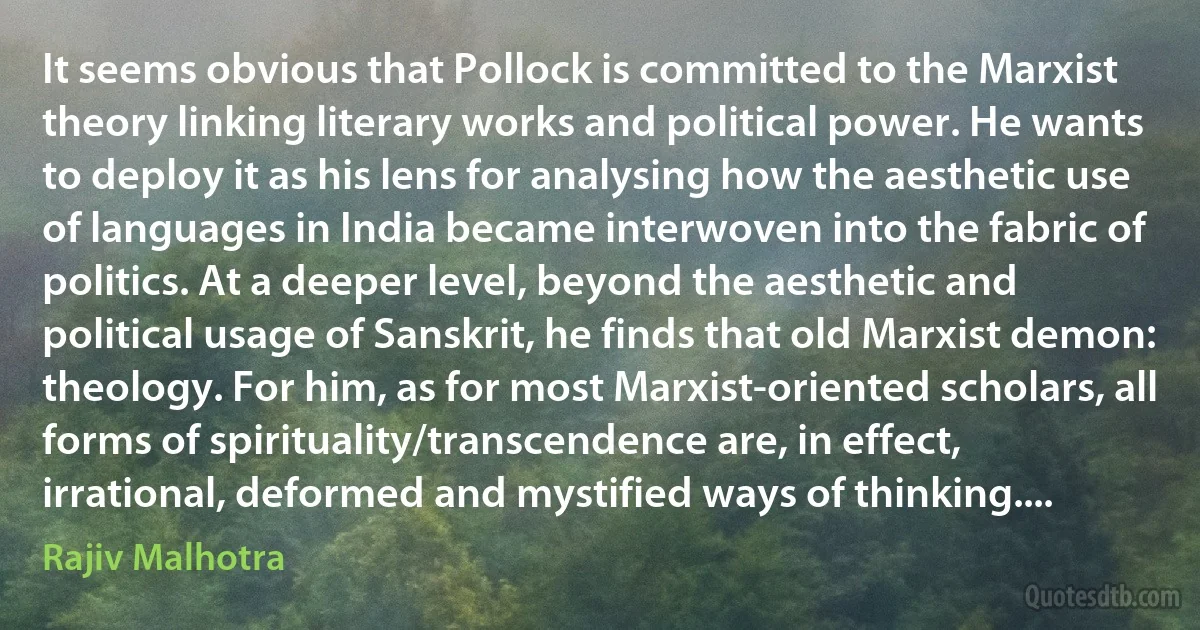
It seems obvious that Pollock is committed to the Marxist theory linking literary works and political power. He wants to deploy it as his lens for analysing how the aesthetic use of languages in India became interwoven into the fabric of politics. At a deeper level, beyond the aesthetic and political usage of Sanskrit, he finds that old Marxist demon: theology. For him, as for most Marxist-oriented scholars, all forms of spirituality/transcendence are, in effect, irrational, deformed and mystified ways of thinking....
Rajiv MalhotraRelated topics
aesthetic beyond commit deploy irrational lens linking politics pollock power spirituality theology thinking transcendence use works marxist waysRelated quotes
Indian spirituality, proclaimed that the true Godhead was beyond number and count; that it had many manifestations which did not exclude or repel each other but included each other, and went together in friendship; that it was approached in different ways and through many symbols; that it resided in the hearts of its devotees. Here there were no chosen people, no exclusive prophethoods, no privileged churches and fraternities and ummas. The message was subversive of all religions based on exclusive claims.

Ram Swarup
There is no coherent knowledge, i. e. no uniform comprehensive account of the world and the events in it. There is no comprehensive truth that goes beyond an enumeration of details, but there are many pieces of information, obtained in different ways from different sources and collected for the benefit of the curious. The best way of presenting such knowledge is the list - and the oldest scientific works were indeed lists of facts, parts, coincidences, problems in several specialized domains.

Paul Karl Feyerabend
When scientists need to explain difficult points of theory, illustration by hypothetical example - rather than by total abstraction - works well (perhaps indispensably) as a rhetorical device. Such cases do not function as speculations in the pejorative sense - as silly stories that provide insight into complex mechanisms - but rather as idealized illustrations to exemplify a difficult point of theory. (Other fields, like philosophy and the law, use such conjectural cases as a standard device.)

Stephen Jay Gould
As the people are the only legitimate fountain of power, and it is from them that the constitutional charter, under which the several branches of government hold their power, is derived, it seems strictly consonant to the republican theory, to recur to the same original authority, not only whenever it may be necessary to enlarge, diminish, or new-model the powers of the government, but also whenever any one of the departments may commit encroachments on the chartered authorities of the others.

James Madison
When you have committed an action that you cannot bear to think about, that causes you to writhe in retrospect, do not seek to evade the memory: make yourself relive it, confront it repeatedly over and over, till finally, you will discover, through sheer repetition it loses its power to pain you. It works, I guarantee you, this sure-fire guilt-eradicator, like a homeopathic medicine - like in small doses applied to like. It works, but I am not sure that it is a good thing.

Mary McCarthy
